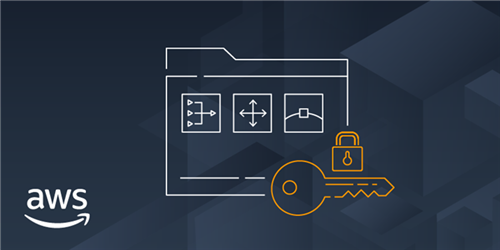.pngL.jpg)
DevOps is a compounded methodology that combines the best practices and experiences of development, platform and application testing and process support within the lifecycle of a software development project. Applying DevOps practices and methodologies enables organisations to manage tool development, solution development, integrated tool and platform testing and higher speed and productivity assistance. Besides all of this, it also adds the pivotal elements of CI/CD (continuous integration and continuous deployment) to a DevOps Engineer’s roles and responsibilities.
As recently as a decade ago, the testing, support, development and deployment teams functioned in isolation. These silos make communication harder, brought in several gaps in processes and also caused conflicts within the work environment as the roles of individuals were not rigidly defined. As a result of such hurdles, there are consistent misunderstandings, conflicts and miscommunication that negatively impact productivity and the customer experience. The evolution of DevOps from isolated development and operations profiles and approaches has attempted to bridge these gaps in an effective and cost-efficient manner.
Another benefit of DevOps is that it provides several technical benefits, including early detection of problems, continuous delivery, efficient problem solving and simplified project management. Some of the business benefits include faster delivery, improved collaboration and better KPI management within teams. Each of these aspects significantly impacts the customer experience.
Some of the most popular and widely used DevOps tools are:
- GitHub and Git - Source code management (VCS or version control system)
- Selenium - Automation testing
- Jenkins - Automation server that comes with plugins designed for CI/CD pipeline development
- Docker - Platform for software containerisation
- Puppet - Configuration deployment and management
- Kubernetes - Container orchestration tool
- Chef - Configuration deployment and management
- Nagios - Continuous monitoring
- Ansible - Configuration deployment and management
You May Also Like: What is DevOps? How it works and Good for career
DevOps Engineer Roles and Responsibilities:
A DevOps Engineer closely works with the IT personnel and developers in an organisation to oversee code releases. They demonstrate combined experience and expertise in coding and engineering. From implementing and creating systems software to data analysis that improves existing solutions, DevOps engineers help in increasing the productivity of an organisation. They have the knowledge and expertise of software development lifecycles and intricately understand several automation tools that help develop digital CI/CD pipelines.
DevOps Engineer Job Description:
The roles and responsibilities of a DevOps Engineer combine management and technical roles. Additionally, they must have superior coordination and communication skills that help in successfully integrating several functions according to a coordinated system and deliver solutions that guarantee customer satisfaction.
The responsibilities of a DevOps Engineer are manifold. A professional in this role should be agile as there are both operations and technical hats to be worn at the same time. Their core responsibilities are as follows:
- Understand project KPIs and metrics and customer needs
- Implement different development, automation, IT and testing infrastructure
- Plan team activities, team structure and different member involvement in project management activities
- Manage external interfaces and stakeholders
- Set up tools and necessary infrastructure
- Define and set processes for development, testing, releases, updates and support in DevOps operations
- Demonstrate technical expertise for reviewing, verifying and validating software code that is developed for the project
- Troubleshoot different techniques and fix bugs in the code
- Monitor all the processes through the project lifecycle to ensure adherence or updates whenever needed
- Create new processes to improve and minimise wastage
- Encourage and build automated processes as and when applicable
- Identify and deploy measures for cybersecurity through continuous risk management and vulnerability assessment
- Root cause analysis and incidence management
- Coordinate and communicate with customers and team members
- Select and deploy relevant CI/CD tools
- Aim to build CI/CD, improve continuously and build a constant CI/CD pipeline
- Mentor and guide people in the team
- Monitor and measure KPIs and customer experience metrics
- Manage progress reporting after fixed intervals evaluating both customers and management
Here’s what a typical job description would look like for a DevOps Engineer. If you are still developing the necessary skills, it’s a good idea to keep looking at official job descriptions to know which skills organisations are looking for and which ones you should focus on to get selected for lucrative roles.
Here at Koenig Solutions, we keep the customer experience at the centre of all our solutions and offerings. We are looking for a DevOps engineer who can help in building functional systems and workflows that will improve customer experience. In this role, you will help identify production issues, deploy product updates and implement integrations to meet customer needs. Additionally, background or experience in software engineering and familiarity with Python or Ruby will give you an edge.
Role objectives:
- Build and set up new development infrastructure and tools
- Understand stakeholders’ needs and communicate them to the developers
- Work on new ways to improve and automate development and release new processes
- Test and examine code that others write and analyse its results
- Ensure systems are safe against cyberattacks and threats
- Identify technical problems and glitches and create software updates to fix these bugs
- Work with developers and engineers for software to ensure development is done according to established processes and functions as intended
- Plan projects and get involved in decisions relating to project management
Responsibilities monthly and daily:
- Deploying fixes and updates
- Providing Level 2 support for technical complaints
- Building tools that reduce error occurrences and enhance the customer experience
- Developing software solutions that integrate with internal systems at the back end
- Performing root cause analyses for errors in production and development
- Developing scripts that automate visualisation
- Designing processes to aid system maintenance and troubleshooting
Skills and qualifications required for this role:
- A Bachelor’s degree (B.Sc.) in Engineering, Computer Science or a similar field
- Experience working as a DevOps Engineer or any relevant software engineering position
- Proficiency in working with Git workflows (the tool can vary from one company to another)
- Strong background in Python or Ruby
- Working understanding of SQL and databases
- Collaborative team spirit
- Problem-solving mindset
Preferred qualifications:
- Master’s degree or equivalent in software engineering or computer science
- Experience with customer experience and software and civil engineering
- Experience developing an engineering application for a large company at the enterprise level
How to Become a DevOps Engineer:
The roles and responsibilities of this role are well justified by the lucrative salary that comes with it. If you are looking at building your career as a DevOps engineer, there is a path you can follow to gain the necessary skills, qualifications and expertise.
A DevOps engineer role is typically a senior position. Therefore, you need significant experience working as a part of software development teams or organisations. Most people who become DevOps engineers either have been developers in the past, QAs or worked in operations-related roles.
This could be true for any specialist role in the IT industry, but a computer science degree focusing on software development will always be an advantage. But as requirements change from formal education to skill-based requirements, there are several self-taught and professionally certified developers entering the industry with all the relevant skills and experience.
Thus, a traditional four-year degree is just one of the ways to enter the industry. While it is the most direct, there are several different ways to get experience in a software development role that could open new avenues for you as a job seeker.
A dedicated manual tester at a junior level can steadily get on-the-job experience, start training and earn the industry qualifications needed before moving to a more senior QA or testing role. The final destination on this path is the DevOps engineer role.
You should also have sufficient knowledge about cloud computing systems and platforms, as well as any new technologies and solutions like Microsoft Azure, GCP (Google Cloud Platform) and AWS.
Also Read: Top DevOps Interview Questions You Must Prepare
DevOps Engineer Salary:
Among all the IT professional roles, a DevOps Engineer has one of the highest salaries in the industry. While this salary is determined by various factors like skills, organisation, location and experience level.
From the estimated salary of 18,434 users, employees and existing job ads, Indeed shared data to show that the average annual salary of a data engineer is $121,589. The job platform also shared data showing the salaries of leading organisations in the US.
- Talener Group DevOps Engineer - $139,875 per annum
- Motion Recruitment Partners DevOps Engineer - $140,019 per annum
- Autodesk DevOps Engineer - $138,887 per annum
Additional data by Seek.com estimated the average salary of a DevOps Engineer at AUD130,000 per annum, the equivalent of USD 96,870 or GBP 82,500. Glassdoor estimated the average salary of DevOps engineers at GBP 65,000 per annum in Munich, Germany, which includes additional compensations in cash over and above basic salary components.
Glassdoor is a leading job platform for Ukraine, a popular destination for IT outsourcing. It estimated the average salary of a DevOps engineer to be $2500 for junior positions and $5000 for a senior position.
If you are looking at building a career that leads to a DevOps engineer, enrolling in a training course on Koenig can help you get there. Give your career the boost it deserves and sign up for one today.


.pngM.jpg)


v1.0.Th.jpgM.jpg)

COMMENT